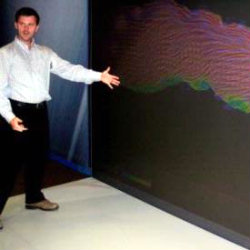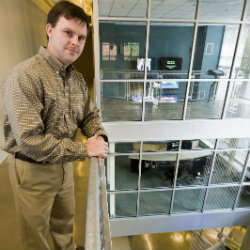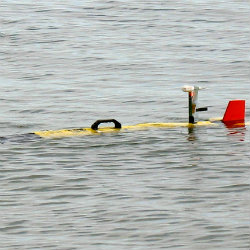Hydraulic and Hydrologic Engineering
Hydraulic and Hydrologic engineers work to prevent floods, to supply water for cities, industry and irrigation, to treat wastewater, to protect beaches, and to manage and redirect rivers. In the hydraulics and hydrology profession you will be using scientific study of the properties, distribution, and circulation of water on the surface of the land, in the soil and underlying rocks, and in the atmosphere.
In Civil Engineering's Hydraulic and Hydrologic Engineering specialty group, also sometimes termed Water Resources Engineering, you will deal with problems and issues involving the flow and storage of water. Specific applications have traditionally arisen in urban drainage, measures for mitigating the effects of floods and droughts, water supply, water treatment, and coastal protection. More recently, the flow implications for water quality have become of greater concern, and the transport of sediment, nutrients, and pollutants in natural or engineered
watercourses has received greater attention. The Hydraulic and Hydrologic Faculty members are particularly interested in applying the latest software and hardware technologies to investigate, understand, and model fundamental flow and transport processes with the widest range of applications. Research opportunities may be found in projects dealing with turbulent flows, watershed hydrology, environmental hydraulics, and contaminant transport. The Hydromechanics and Burke Research Laboratories give undergraduate and graduate students hands-on learning opportunities to expand their experience here at Purdue.
Spotlights
June 3, 2011
Congratulations to Prof. Venkatesh Merwade, co-recipient of the 2011 Quentin Martin Best Practice Paper Award.
June 3, 2011
Congratulations to Prof. Emeritus Jack Delleur, honored with an EWRI 2011 Lifetime Achievement Award.
April 22, 2011
Congratulations to Sanjiv Kumar, a Ph.D. student in hydraulics and hydrology, for winning the Outstanding Student Paper Award at the American Geophysical Union's 2010 Fall Meeting.
February 4, 2011
Prof. Cary Troy is working with ITaP data visualization specialists to help provide some illuminating 3-D animations of environmental fluid mechanics processes affecting the Great Lakes.
October 14, 2010
The School of Civil Engineering has dedicated a new civil engineering laboratory housing advanced hydrology and hydraulics facilities for teaching and research related to water resources.
June 16, 2010
Prof. Cary Troy and a team of researchers are using a robotic submarine and other specialized tools in Lake Michigan to gather biological and environmental data showing how young fish vital to the ecosystem may cope with future climate change.
July 8, 2009
Congratulations to Shivam Tripathi, recognized with a Best Challenge Paper Award at the Third International Workshop on Knowledge Discovery from Sensor Data.
March 10, 2009
Sanjiv Kumar won the Outstanding Student Paper Award in the hydrology section at the 2008 American Geophysical Union's fall meeting.
January 23, 2009
Prof. Cary Troy's Autonomous Underwater Vehicle (AUV) took its maiden launch Oct. 2nd at Lake Maxinkuckee in Culver, Indiana.
March 23, 2007
Professor Emeritus Jack Delleur is the recipient of the 2007 Ray K. Linsley Award. This award was established in 1986 to recognize individuals who have made outstanding contributions in surface water hydrology.
October 2, 2006
The Purdue University board of trustees approved the appointment of
Professor "G.S." Govindaraju as the Christopher B. and Susan S. Burke
Professor of Civil Engineering, effective September 29, 2006. Professor Govindaraju specializes in the hydraulics and hydrology area.
August 3, 2006
The $1.5 million ten-year pledge from Chris and Susan Burke establishes the Christopher B. and Susan S. Burke Professorship.










